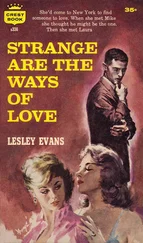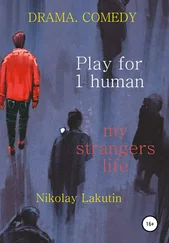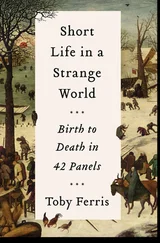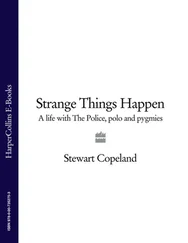Douglas Hofstadter - I Am a Strange Loop
Здесь есть возможность читать онлайн «Douglas Hofstadter - I Am a Strange Loop» весь текст электронной книги совершенно бесплатно (целиком полную версию без сокращений). В некоторых случаях можно слушать аудио, скачать через торрент в формате fb2 и присутствует краткое содержание. Жанр: Прочая документальная литература, на английском языке. Описание произведения, (предисловие) а так же отзывы посетителей доступны на портале библиотеки ЛибКат.
- Название:I Am a Strange Loop
- Автор:
- Жанр:
- Год:неизвестен
- ISBN:нет данных
- Рейтинг книги:4 / 5. Голосов: 1
-
Избранное:Добавить в избранное
- Отзывы:
-
Ваша оценка:
- 80
- 1
- 2
- 3
- 4
- 5
I Am a Strange Loop: краткое содержание, описание и аннотация
Предлагаем к чтению аннотацию, описание, краткое содержание или предисловие (зависит от того, что написал сам автор книги «I Am a Strange Loop»). Если вы не нашли необходимую информацию о книге — напишите в комментариях, мы постараемся отыскать её.
I Am a Strange Loop — читать онлайн бесплатно полную книгу (весь текст) целиком
Ниже представлен текст книги, разбитый по страницам. Система сохранения места последней прочитанной страницы, позволяет с удобством читать онлайн бесплатно книгу «I Am a Strange Loop», без необходимости каждый раз заново искать на чём Вы остановились. Поставьте закладку, и сможете в любой момент перейти на страницу, на которой закончили чтение.
Интервал:
Закладка:
The Radical Redesign of Douglas R. Hofstadter
The intuitions being pushed here are very emotional and run very deep in our culture and our whole view of life. It gets particularly intense for me when I insert myself into this scenario and start imagining the personality-trait substitutions that a neurosurgeon might carry out by throwing one switch after another.
For example, I begin by imagining that, upon the throwing of Switch #1, my love for Chopin and Bach is replaced by a visceral loathing of their music and that instead, a sudden yet powerful veneration for Beethoven, Bartók, Elvis, and Eminem flowers in “my” brain.
Next, I imagine that Switch #2 causes me every single weekend (and every other spare moment as well) to elect, instead of designing ambigrams or working hard on my book about being a strange loop, to spend hours on end watching professional football games on a huge-screen television and delightedly ogling all the busty babes in the beer ads.
And then (Switch #3) I imagine my political leanings being turned on their head, including my decades of crusading against sexist language. Now, I come out with “you guys” every other sentence, and anyone who objects to it I chortlingly deride as “a politically correct monkey” (as you might imagine, that’s just one of the milder epithets I use).
With the next switch, I jettison my lifelong inclination towards vegetarianism and trade it in for a passion for shooting deer and other wild animals — and of course the larger they are, the better. Thus, after Switch #4 has been thrown, I just adore toppling elephants and rhinos with my trusty rifle! The most fun thing in the world! And each time one of the noble beasts bows humbly down to my triumphant bullets, I give one of those “I’m great” jerks with my arm, which one so often sees when a football player scores a touchdown.
And lastly, needless to say, after Switch #5 has been thrown, I totally agree with John Searle’s Chinese Room experiment, and I think that Derek Parfit’s ideas about personal identity are a complete crock. Oh, I forgot — can’t do that, since I never think about philosophical issues at all!
You may have noticed that when I discussed Switch #1, I put quotes around the word “my” when talking about the brain in which a veneration for Ludwig, Béla, Elvis, and Eminem flowers. From there on out, though, I didn’t bother with the quote marks, but I probably should have. After all, everything I suggested in the paragraphs above is the diametric opposite of what I consider core me-ness. Letting go of even one of these traits is enough to make me think, “That person wouldn’t be me any more. That couldn’t be me. That is incompatible with the deepest fiber of my being.”
Of course we can imagine milder changes, such as an alternate life in which I somehow never ran into Prokofiev’s violin concerto #1. That would be another version of me, and surely a more impoverished one, but it would still feel like me, to this me. Or we can imagine that I still eat hamburgers on occasion but feel guilty about it, or that once in a blue moon I voluntarily turn on a football game on TV. These are shades of gray that create a halo of “possible Dougs” around the Doug that I happen to have become, thanks to a million accidental events that have befallen me over the decades, and thanks to hundreds of particular individuals who happen to have entered my life (and millions of others who never did, not to mention an infinite number of counterfactual individuals who never entered my life!). We don’t normally think of “who/what/how I am” in such shades of gray, but there they are, spelled out a bit, in my case.
On “Who” and on “How”
I might add, by the way, that I think the word “who” is sometimes granted a bit too much subliminal power, in much the way as are the personal pronouns “he” and “she” (you may recall my brief interchange with Kellie about pronouns applied to animals, in Chapter 1). In the 1980’s, Pamela McCorduck wrote a history of artificial intelligence with the provocative and ingenious title “Machines Who Think”. The word “who” in the title conjures up an image radically different from our knee-jerk associations with standard machines such as can-openers, refrigerators, typewriters, and even computers; it suggests that with at least certain machines, there is someone “in there”, or as Thomas Nagel would say, “there is something it is like to be that machine” (a hard phrase to translate into other languages, by the way). It implicitly suggests, once again, a sharp, black-and-white dichotomy between a set of hypothetical “machines that think” (such machines would merely think but would have no inner life) and a different set of hypothetical “machines who think” (these machines would have an inner life, and each one would be a particular someone ).
It has often seemed to me that ultimately, when I am thinking about who my closest friends are, it all comes down to how they are — how they smile, how they talk, how they laugh, how they listen, how they suffer, how they share, and so on. I think to myself that the innermost essence of each friend is made up of thousands of such “how” ’s, and that that collection of “how” ’s is the answer — the full answer — to “Who is this person?”
It may seem that this is purely a third-person, external perspective, and that it takes away, or even denies, the whole first-person perspective. It may seem to short-change or even to casually dismiss the “I”. I don’t think so, however, for I think that even to itself, that is all an “I” is. The rub is, an “I” is very good at convincing itself that it is a lot more than that — in fact, that is the entire business that the word “I” is in! “I” has a vested interest in continuing this scam (even if it is its own victim)!
Double or Nothing
At long last, we return to the Venus-versus-Mars enigma of Episode III. I have already told you that Parfit somewhat sidesteps the question by simply denying the existence of Cartesian Egos, and thus saying that the question has no meaningful answer. But in his book he also refers quite often to what he terms “double survival”, which means essentially that he is simultaneously in two places at once. More than once, he writes that double survival is hardly equivalent to death (which would be no survival), and that the number two should not be conflated with the number zero! So what is he really saying? Is he saying that there is no answer to the question, or is he saying that in fact he has been doubled, and there are now two Derek Parfits?
It’s hard for me to figure this out since I think he says both things often enough that one could argue it either way. But where do I come down on this issue? I think I come down on the “two me’s” side. At first, this almost sounds as if I am embracing the Cartesian Ego theory, just imagining that the egg is cloned and two identical Cartesian Egos come to exist, one on Venus and one on Mars. But then SL #642 would start screaming, “Which one is me?” It sounds as if I haven’t answered the question at all, or as if I want to have my egg on Mars and eat it too, on Venus.
In order to regain some semblance of consistency, I have to return to SL #641’s theme in the dialogue, which is that the “I” notion is, fundamentally and in the end, a hallucination. Let’s let Episode III, my teleportation scenario with fresh copies on Venus and Mars and no copy left on Earth, apply to me instead of to Parfit. In that case, each of the new brains — the one on Mars and the one on Venus — is convinced that it is me. It feels just like it always felt to be me. The same old urge to say, “I am here and not there ” zooms up in both brains as automatically as when someone taps my knee and my leg jerks upwards. But knee-jerk reflex or not, the truth of the matter is that there is no thing called “I” — no hard marble, no precious yolk protected by a Cartesian eggshell — there are just tendencies and inclinations and habits, including verbal ones. In the end, we have to believe both Douglas Hofstadters as they say, “This one here is me,” at least to the extent that we believe the Douglas Hofstadter who is right now sitting in his study typing these words and saying to you in print, “This one here is me.” Saying this and insisting on its truth is just a tendency, an inclination, a habit — in fact, a knee-jerk reflex — and it is no more than that, even though it seems to be a great deal more than that.
Читать дальшеИнтервал:
Закладка:
Похожие книги на «I Am a Strange Loop»
Представляем Вашему вниманию похожие книги на «I Am a Strange Loop» списком для выбора. Мы отобрали схожую по названию и смыслу литературу в надежде предоставить читателям больше вариантов отыскать новые, интересные, ещё непрочитанные произведения.
Обсуждение, отзывы о книге «I Am a Strange Loop» и просто собственные мнения читателей. Оставьте ваши комментарии, напишите, что Вы думаете о произведении, его смысле или главных героях. Укажите что конкретно понравилось, а что нет, и почему Вы так считаете.












